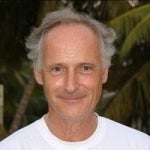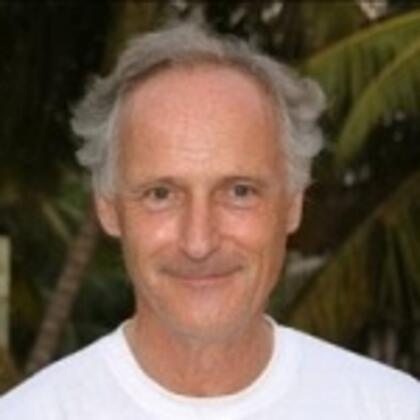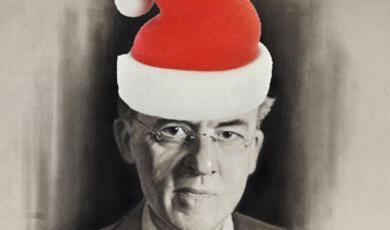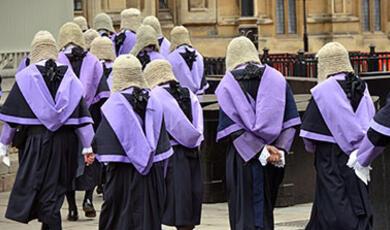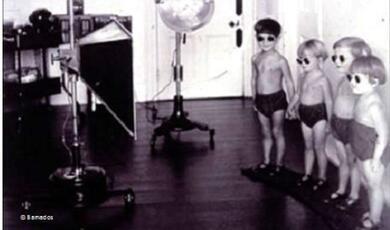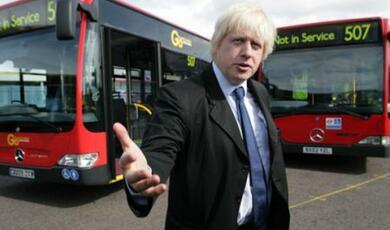The Work of Medecins Sans Frontieres
Share
- Details
- Transcript
- Audio
- Downloads
- Extra Reading
Médecins Sans Frontières (Doctors Without Borders (MSF)) is an independent humanitarian organisation that provides impartial emergency medical aid to the victims of war, natural disasters and epidemics in more than 70 countries around the world.
Paul McMaster will talk about his work with MSF’s emergency surgical team in conflict zones.
Part of the Mondays at One Spring Series
Download Transcript
3 March 2014 The Work of Medecins Sans Frontieres Dr Paul McMaster Good afternoon, ladies and gentlemen. It is a great pleasure for me on behalf Medicins Sans Frontieres to be with you and to share just a little of the work that my colleagues undertake. The Professor is giving a talk next week on the diseases of the First World War, and amongst them will be conditions like typhoid and cholera, and in fact, they are conditions which our medical colleagues still grapple with in the world. But my task perhaps is to say a word about humanitarian medicine, and in particular surgery in conflict settings, but you see the sub-title “in the Real World”, and I say that because, having spent 35 years propping up universities and the Health Service, I realise now that there is a vast world out there where the challenges are all a little bit different. Many of you might think “humanitarian medicine”, what a wishy-washy, tree-hugging approach that is, and do not tell me it is another charity asking for help, so I am going to try and persuade you that it has an important role still in this world, a role that I think Sir Thomas Gresham would have applauded because his donations to charity and the establishment of the Gresham College was part of that philanthropic responsibility, as he saw it, to his fellow human being. So, Medicins Sans Frontieres or Doctors Without Borders, just to give you a little hint, is a global organisation, working in many parts of the world, dealing with many medical problems. You have to show pictures of children, I am told. I have colleagues here who tell me, if you do not show pictures of children, nobody is interested and they all go home. But this is to remind me to remind you that, although I will be talking about disaster and conflict, most of our work is with communities in crisis who are then tipped over by the sort of diseases that perhaps you and I have long forgotten. Outbreaks of measles in refugee camps are one of the biggest killers in under-five year olds. Malnutrition, something that, amazingly, is rearing its head again in some selected groups, can become a devastating event. There is a thing called the hunger gap in the season for some three or four months where many communities will simply not have enough food to tide them over, and other conditions like malaria and so forth that we no longer see in Europe. So, what is Medicins Sans Frontieres? It all sounds very French, does it not?, and we do not do French? Well, it arose originally during the Biafran War, and I will not ask you to put your hand up if you remember the Biafran War, but it is the more mature generation. It was that dreadful conflict that broke out in Nigeria, with the separatist movement in Biafra at the beginning of the 1970s, and a small group of French doctors working with the Red Cross were so appalled by what they were seeing, not just medically, but in terms of humanitarian abuse, that they spoke out, something that, in general, the Red Cross does not do. I am not being critical – I have worked with the International Committee. But at that time, they did not speak out, and so these young doctors spoke out, complained about the horrific events they were seeing, and were promptly thrown out of the organisation, and they said this is really not good enough, and they set up a small group of voluntary medics and nurses and physios to try to respond. If I am honest, in the ‘70s and ‘80s, that response was relatively modest, but again - now we are into the younger members of the audience - you will remember the two catastrophes that befell the world in humanitarian terms in the mid-‘90s: Rwanda, Trebinje, Bosnia, Muslims slaughtered, and the tragedy was that this was in the presence, to an extent, of our international community that so many of us, as young people, had seen as the solution to supporting the oppressed of the world. So, MSF scaled-up its whole medical activities – if the international community is not going to respond, then we will respond. We will seek young medics from around the globe who are willing to work and we will speak out, if necessary, to the international community. So, we scaled up in an extraordinary fashion. We now have more than 35,000 medical workers across the globe working with communities in crisis. We are not the World Health Organisation. We do not rebuild health structures. We work with communities in crisis in their hour of need. Medicins San Frontieres. No borders. No barriers. How naïve can that be in this modern world? And there is, of course, a background framework with which we work. More than a hundred years ago, following outrage at finding so many injured on the battlefield more than 24 hours after the conflict in Northern Italy and the establishment of the Red Cross, a whole series of conventions, largely dealing with the weapons that could be used. I was embarrassed to discover one of the main driving forces to the second Hague Convention was the use of dum-dum bullets by the British Army. I did not know that dum-dum was a town in Northern India, but it was apparently the place where the British Army allegedly used bullets, the top of which had been filed off, so that they had a devastating impact. So there were a series of conventions about the behaviour in warfare and of course, after the Second World War, the United Nations, these were drawn together in the fourth Geneva Convention, and then the individual human rights all brought together. All well and good. These principles, in large measure, related, quite rightly, to non-combatants, to prisoners, and to refugees; but the problem is, with the world that we work in, things have changed a little since then, and wars have changed. There are fewer wars between one country and the next. The conflict is often within the country. As I came on the train this morning, and I am sure you did on the news, we listened to Ukraine and Crimea, and here we have turmoil within a country. This is important because the definition of refugee is someone who crosses an internationally recognised border, and if you do that and you are destitute, under the United Nations Charter, there is an obligation for support. But now what we find is the number of people displaced within their own country is often a very, very much bigger problem, and many of the conventions do not cover that. So, in the real world at this time, we find difficulties of accessing these people, frequently in unstable settings, and often insecure. I say those three things quickly, but it is an immensely challenging thing in practice to deal with. Our focus is on the community in crisis. So, what is this? Is this conflict? Is this disaster? In many ways, the two are very similar. But this is Port-au-Prince, not too long after the earthquake on the 12th of January 2011. To the left, you do not see, but just off is one of our bases where we had been working with the destitute in Port-au-Prince, and people came, or were brought or carried on doors, to where they thought there might be help and support, and we had to mobilise very quickly indeed to get our teams in, flying into the Dominican Republic, and driving through the night so that we could be down there. This is an example of our ward, blocking off the road outside a hospital where we were working. One of my challenges is to help to prepare our young medics to go into situations like this, brought up in big hospitals in Birmingham or Cambridge or London, with x-ray machines, with CT scanners, with Intensive Care, and they say, “What do you mean, I will not have x-rays? What do you mean, I will not have all the panoply?” And yet, these people here can benefit immensely from relatively simple medicine. This first phase, as we call it, is the emergency response that we put onto the ground. We call it “under the tree”, for the very obvious reasons. This is a fairly senile individual who stands before you now - my great embarrassment…I cannot remember what the tree was, but things kept falling on our heads as we went by. But the reason to show this is to show the real heroes in this, who are these folk here. It is always the national staff, it is always people from the country who are first responders and the most important, and we go in to support them, and the fact that we turn up suddenly provides a focus for medical people. This is one of our obstetric anaesthetists who heard we were back and working and came to help with the victims and those wounded and injured after the earthquake. Hundreds of people, thousands of people, damaged under those circumstances… We move very quickly. We put in a general surgeon or general surgical teams for the first week or so. Very difficult to get in – the airport is blocked, air traffic control is gone, and there is no fuel. As soon as we can, we get our field hospitals in, and we bring in what we call the clever doctors – they are the specialists. You all know what a specialist is: a specialist is someone who turns up weeks later and says, “Who on earth has done this?!” And so, the clever doctors come in, deal with the burns and the orthopaedics and the plastics, and our logisticians start field hospitals, and then we put inside smart stuff – x-ray machines and everything else. But it is an immense logistic challenge sometimes to get into those settings… Or perhaps Pakistan, with the earthquake or the floods… MSF responds. Where is this? The Philippines. When was it? November…I forget the dates of it, but we heard that a massive typhoon was heading for the Philippines. The Philippines, I am told, have typhoons ever two or three weeks, but this was a massive one. This is Tacloban here, I think 36 hours afterwards, and this is the hospital facility, completely flooded, with the roof down and destroyed. But the truth is that many of these wounded and casualties, with simple care, you can prevent wounds getting infected and prevent the problems of overwhelming infection, or indeed tetanus that you may be hearing about next week. So, it is a rapid response team that we look to. Now, of course, humanitarian medicine and surgery is not the newest things. At the same time Sir Thomas was bequeathing the lectures that today I am giving, Ambrose Paré was saying famously to doctors, “If you want to understand surgery and learn surgery, you must first go to war.” And the reason was that the wounds would expose you to areas that you had to deal with that if I can call civilian practice would have been unheard of. Who can tell me what this operation is? One of the commonest operations of the day, and sadly one that sometimes is still necessary – amputations, indeed, one of the very commonest operations, and we are not too far from, St Thomas’s Hospital. I wonder if any of you have been into the old operating theatre there. If you have a rather macabre interest, I do encourage you to do so. There was a very famous surgeon, the story goes – I am sure it is apocryphal but that because people died of shock very quickly, amputations had to be done very rapidly, and an amputation of the leg in two minutes was not uncommon. But Sir Arbuthnot Lane was said to be an absolute master and he could do the amputation in under one minute, sometimes removing the finger of his first assistant and the left testicle of his second. So, amputation was a common procedure in war. Why? Because of infection, if you allowed damaged tissue to remain, and as I say, the great killer in the First War was tetanus or gas gangrene. So, MSF does respond to casualties in violence, and one of our problems is access. This is a picture of the southern part of South Sudan. Because we speak out when we find humanitarian tragedies and abuse, because we challenge the authorities who are responsible for the care of their citizens, then we are not always popular. We always say to the team “Somebody does not want you there” – maybe the authorities or local people. And we have been thrown out, “evicted” is the term I think, from Northern Sudan, Sri Lanka, I was arrested, and we have the problem of Syria. Perhaps, for a few moments, I will say a word about that. Before doing so, what right have we got to go into people’s country? What are we doing this morning? Complaining about the Ukraine and Crimea. What right does Russia have to go in? What right do we have? Well, this would be my legal fig-leaf. If there are lawyers in this audience, I would beg you to be patient. The UN Article in 2005 is called the universal ‘responsibility to protect’ or R2P, and what that really means is that the British Government, French Government, Russian Government, Ukraine Government, has a principal responsibility to care and protect its civilians, but this says, if it should fail to do so, then the international community is obliged to use appropriate peaceful means to do so. So, we would interpret that to mean, well, if you are not looking after your cholera victims or your casualties, we will come in, under R2P, and help you. What does that mean? Well, here are the sort of pictures that you have seen almost each evening on your televisions over the last three years. This is Syria. I do not know if you can see, but with Damascus down here, with the major towns of Homs and Aleppo on this coastal area. This is a rather old map, but what it tends to show is there were large areas of the country that were no longer under government control. They were under the control, if that is the right word, of opposition people, following the Arab Spring and the response to that. So, MSF goes to Damascus, goes to the authorities, and says “We would like to come and work in your country with people who are injured, wounded and those internally displaced,” and the authorities have yet, after three years, to agree to that. So, we, under R2P, have taken teams in, and you will understand I am being a little circumspect, by irregular routes, into the areas where the main casualties and the main fighting is. Until relatively recently, teams walked in through the hills to get to some of our projects. Why do we do that? Because we are big, macho? Not at all. But because, when you see this in the flesh and you see the events, it is very difficult not to wish to respond to that. I am going to show a couple of pictures, just to try to bring home to you what this means in practice. Here we see Rachel, who is an English anaesthetist, working in the West Country, who each year spends four to six weeks with us in one of the projects. She is down in the basement of our house in the north-west of Syria, and you can see her here anaesthetising the patient, who will be one of hundreds that our teams will treat, with the local Syrian doctors and nurses, the few that remain. She is working in what is suboptimal conditions, to say the least, and yet many lives can be saved by that same approach. As a surgeon, I was not so lucky. They put me in a tent in an old apple store cave, and people did unpleasant things outside, dropping bombs and so forth, and then the roof started to crumble, and then this inflatable operating theatre started to leak and slowly descend. They do that to people in MSF. But the truth was, we were putting forward casualty stations close as we could to the casualties because so many of the casualties came from these barrel bombs, as they are called. I do not know if there is somebody in the audience…I think this is an ME25. It is a helicopter gunship. I gather it cost millions of pounds. And what they are doing is taking oil barrels, filling it with explosive and bits of metal, and pushing it out the door, literally, and you see this barrel coming down, and then there is an explosion of devastation of the area. These were hitting the side of the mountain where I was and we had to move, and the whole place collapsed about three weeks later. So, the challenges for the medics working under those circumstances are quite immense. I mentioned the Philippines. We have had, in MSF, a very bad three months. The Philippines came on top of Syria. Some of you may have heard of the Central African Republic, which went into meltdown in November. Then, just before Christmas, on the 15th of December, South Sudan exploded in violence and conflict. Sudan was, of course, under the British mandate for many years. Here is the north, Egypt, Red Sea, Eritrea, Ethiopia… You will of course be familiar with the problem that there has been in the western region of Darfur for many years, where the local tribal people were in conflict and where the Government in Khartoum were, shall I say, involved. The South became independent, after a 25 year war, from the North about five years ago, and celebrated the newest country on the planet in July 2011. But you can see where I am heading from the red lines. This is not the White Nile from Ethiopia, Blue Nile… These are the oil pipes that drain away from the large oil fields near Malakal and Abyei, which are right along the border between the North and the South of Sudan, and the border in these areas is disputed territory. So, the South would say, well, we have got the oil fields, but the only way to get the oil out, at the moment, is through pipelines that run through the North, up to the Red Sea port. You will not be surprised to hear they are building a pipeline elsewhere. Not surprisingly, tensions built up and then tensions within the factions of South Sudan came to a head in the autumn. Politicians, who had fought together against the North, once that threat had gone, started to break-up politically, and on the 15th of December, the presidential guard turned on itself and some 70 or 80 men were killed. The presidential guard was made up of two fractions, the Dinka tribe and the Nuer tribe, reflecting the ethnic origin of the President and the Vice-President. There followed a bloody, dramatic conflict, within days. We have had teams in there for many years. This is a country that has been devastated by the fighting, which has virtually no infrastructure, but when I got into there, people were fleeing the fighting. The United Nations were trying to move people out, Ethiopians and so forth. The airports were blocked. So, we took in our emergency teams. It is always, of course, well, what is happening, how many casualties, what have you done, but the truth is the misery that goes on for many of the population in crisis is the every day-to-day of getting water, getting food, fleeing the fighting, will lead to great distress. I went into a place in the middle of the Nuer area, to a hospital where we had been treating a disease called kala azar, an epidemic that runs every few years, and set up a forward casualty centre and, within a week or two, treated hundreds of casualties. I show this not to blow our own trumpets - there is virtually nobody else in this country, virtually nobody else – but just to show the sort of numbers within a short period of time. I am not quite sure, I think this was in the first seven or eight weeks after the fighting broke out, and you will see the amount of surgery – 750 major operations. But look at this… The population does not suddenly become healthy. Women do not suddenly stop having babies. And of course, they are displaced, they are aware from their bases, and will get into immense difficulties if we are not very careful. So, what is the challenge? Well, the challenge is for our young medics to cope with the large numbers, in very basic circumstances under the tree. This is one of our hospitals in a place called Leer, up towards the north, where I worked for a few days to stabilise things. That is my operating theatre when we got back to it about three weeks later. Because one or other fraction will see us as aiding the enemy, aiding the opposition, and therefore a perfectly legitimate target, but this is the only health facility for miles and miles around. Some of our staff, some of our national staff who live in the area, the town is empty now, have gone to the bush, and have taken with them the patients that they were caring for in the hospital, with TB and with other wounds. So, a grim situation, and perhaps, with an audience more my age than youngsters, you will say what a hopeless situation – is it not time you just all went home, let them sort it all out? How can you work medically if your facilities are going to get destroyed? Doctors Without Borders works with young medics who come in and they are not going to tolerate that – this is not good enough. We are going to change this world, Paul McMaster, that your generation have left like this. There are the numbers of patients admitted in one country, just a little while ago. Young medics will not accept that nothing can be done. There is more that we can do. And it is that anger and determination of our volunteers that I think drives us and drives us on. We are impartial, we are neutral, we are secular, we are on nobody’s side, except the side of the patient who is wounded or injured, who needs urgent medical care. We will not accept funds from governments, the UN, the European Union, in any area where there is conflict. We will perhaps for vaccination in Congo or something like that. We survive on the energy and the anger of our young medics that this can go on, and the support of hundreds and thousands of people who give a very small donation on a regular basis. So, for me, at the end of my career, and I was just saying, as a young doctor, it was my hope that I would work in the developing world. I was put off by the first chapter in a book on tropical medicine. I do not know if we have got doctors in the audience, but the first chapter was on worms, and I got to the end of that and I thought I cannot spend my professional life doing that! But having done my academic stuff and run mega-Departments, for me, it is a great privilege to support an organisation like this. We are not just interested in saving lives, although that is very often or obvious, but we are interested, where we can, in relieving suffering and restoring independence. This picture, for me, is a very difficult one. I have got grandchildren now. One of my granddaughters is the age of this child. This is a child whose left leg I had to amputate under local anaesthetic in Haiti when we had ran out of everything. The family, I have no idea where they are – they may have been lost in the earthquake. Our task is not just to save her life, but to relieve suffering and try and restore independence, and so our work will be followed by the physios and rehabilitation and mental health, as we can. The promise we give to youngsters like this is “You will dance again – or we will die making that happen.” I say to you I know this is not the real world that I am talking about. It is raining in London. You have got talks tomorrow on the European Union and the legal. But for many, millions across this globe, this is the real world, and for me, it is a great privilege to support an organisation that will take its volunteers into these critical places to help. Thank you very much indeed for listening to me today. © Dr Paul McMaster, 2014
This event was on Mon, 03 Mar 2014
Support Gresham
Gresham College has offered an outstanding education to the public free of charge for over 400 years. Today, Gresham plays an important role in fostering a love of learning and a greater understanding of ourselves and the world around us. Your donation will help to widen our reach and to broaden our audience, allowing more people to benefit from a high-quality education from some of the brightest minds.


 Login
Login
